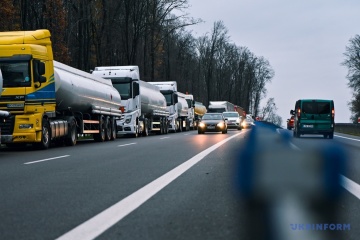
War risk insurance: Unity program extended to non-military cargoes
From now on, the Unity insurance program will cover not only sea transportation of grain and other important food products, but also ships carrying any non-military cargoes.
01 March 2024

From now on, the Unity insurance program will cover not only sea transportation of grain and other important food products, but also ships carrying any non-military cargoes.
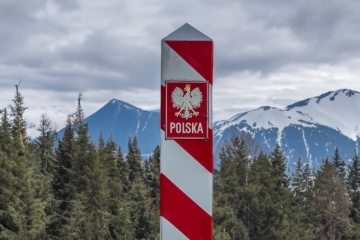
Polish farmers involved in the ongoing protest rally have put to a halt all cargo traffic at the Shehyni checkpoint on the Ukrainian border.
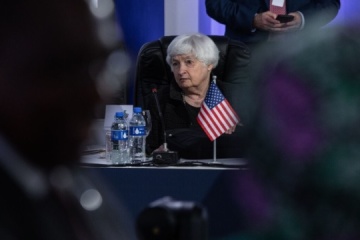
U.S. Treasury Secretary Janet Yellen has said that any plan to confiscate frozen Russian assets to aid Ukraine cannot be seen as a substitute for urgently needed aid to the country.
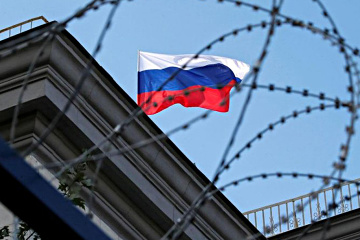
Japan has endorsed the introduction of new sanctions against 12 individuals and 36 entities connected with Russia in relation to Russian armed aggression against Ukraine.
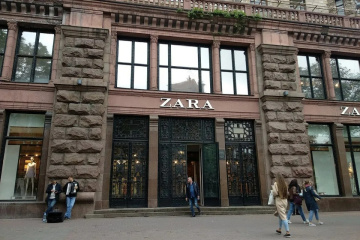
Spanish retail giant Zara is preparing to reopen the stores in Ukraine that it shut soon after Russia's full-scale invasion of the country.
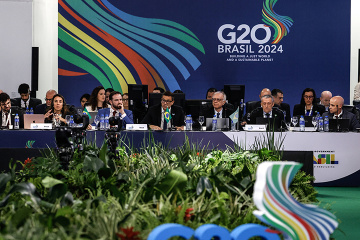
A meeting of finance ministers and central bank chiefs from the Group of Twenty (G20) countries in Brazil ended without a joint statement due to disagreements over Russia's war in Ukraine and the Hamas-Israel conflict.
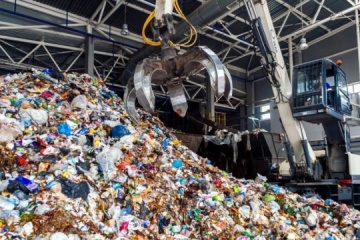
The Ukrainian Environmental Protection and Natural Resources Ministry has selected more than 200 promising waste treatment projects across Ukraine. The estimated cost of such projects is about EUR 4 billion.
29 February 2024
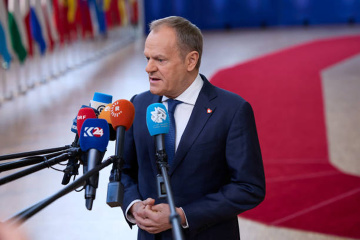
Poland will study Latvia's experience in imposing an embargo on imports of agricultural products from Russia and may soon take similar steps.
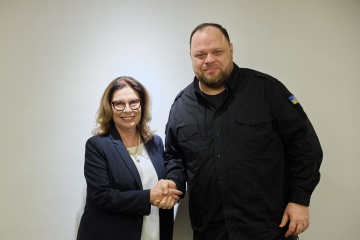
Chairman of the Verkhovna Rada of Ukraine Ruslan Stefanchuk and Marshal of the Senate of the Republic of Poland Małgorzata Kidawa-Błonska discussed the export of Ukrainian agricultural products and the blocking of checkpoints by Polish farmers.
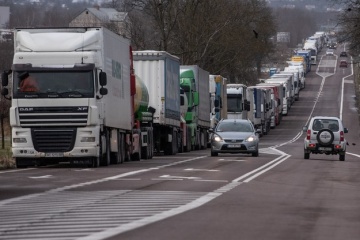
About 2,200 trucks are waiting in line at six checkpoints on the border with Poland.
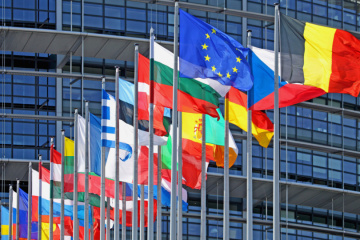
On February 28, the Council of the European Union approved the launch of the EUR 50 billion Ukraine Facility for 2024-2027.
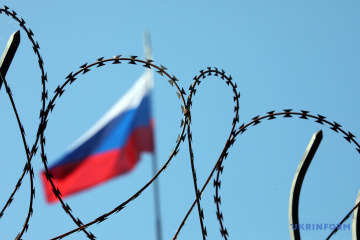
Hundreds of Western and Russian companies are involved in the Kremlin's illegal schemes to dodge sanctions and ensure the covert supply to Russia of electronic components required for the production of weapons.

As part of grant assistance, with the support of the Ukrainian Agrarian Policy and Food Ministry, the Japan International Cooperation Agency (JICA) has started the supply of modern equipment required for the operation of reclamation systems.
28 February 2024

Russia is expanding its procurement networks to evade sanctions imposed on the imports of electronics and other products in order to manufacture weapons and fuel the war in Ukraine, to this end actively using intelligence officers stationed abroad, as well as bribing foreign nationals.
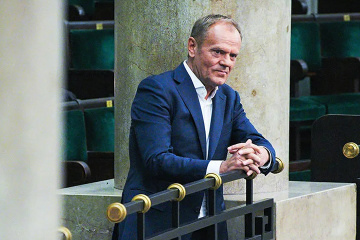
The cap on the import of agricultural products from Ukraine to Poland, proposed by Brussels and Kyiv, are "unacceptable" for Warsaw so Poland is eyeing the possibility of temporarily closing the border for Ukrainian products.
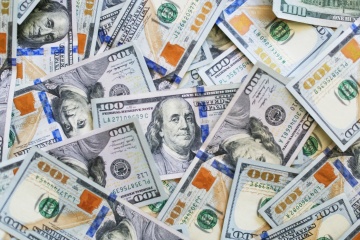
Ukraine received a $760 million grant from Japan and Norway through the World Bank's PEACE project. The funds will be used to compensate for state budget expenditures that are not related to the security and defense sector.
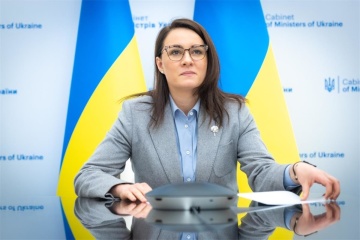
In March 2024, the Cabinet of Ministers of Ukraine is planning to endorse the Ukraine Facility Plan, and then it will be submitted for the approval of the European Commission.
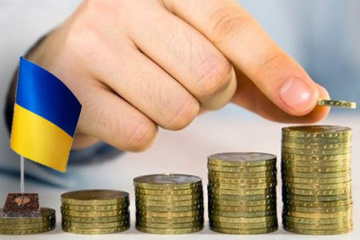
The Ukrainian Economy Ministry and the Organisation for Economic Co-operation and Development (OECD) have started joint efforts to analyze investment incentives and harmonize the investment-related regulatory environment.
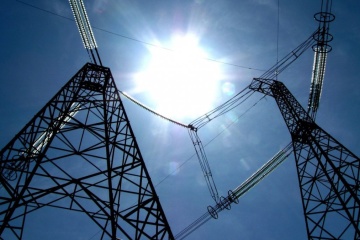
The European Network of Transmission System Operators for Electricity (ENTSO-E) has increased the maximum capacity limit on Ukraine’s electricity exports to 550 megawatts.
27 February 2024
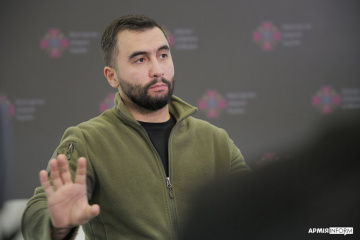
Large retail chains did not participate in the first tenders of the State Logistics Operator, as they do not understand the model of procurement from the product catalog.
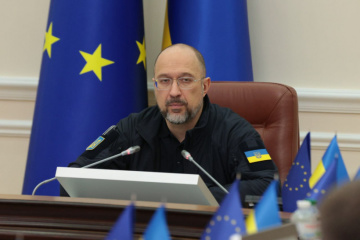
More than 17,000 individual and sectoral sanctions have already been enforced against the Russian Federation, thanks to which the enemy is believed to have lost at least $400 billion.

At a plenary meeting in Strasbourg, the European Parliament has approved the creation of the Ukraine Facility worth EUR 50 billion in the EU budget for 2024-2027, as delivered by the Members of the European Parliament, Michael Gahler and Eider Gardiazabal Rubial, and the proposals of the Council of the EU in this regard.
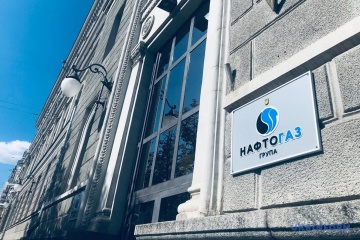
The share of Ukrainian companies among those winning Naftogaz Group’s tenders for the supply of goods and services is ranging from 70 to 90%.
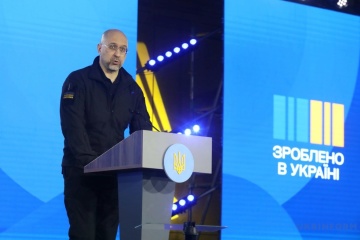
The Government of Ukraine will encourage Ukrainians to purchase domestically produced goods, which is likely to increase the GDP rate by 0.14%.
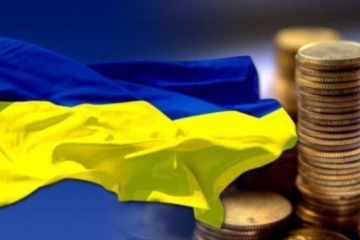
As soon as this March, Ukraine may receive about USD 9 billion in aid from international partners, allowing the state to finance expenditures in a more stable manner.
26 February 2024
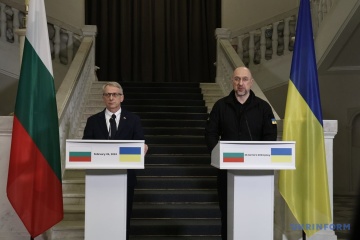
Ukraine and Bulgaria are seeking to implement the vertical gas corridor project as soon as possible, which is a strategic route for the supply of additional volumes of liquefied natural gas.

The very prospect of Ukraine's membership in the EU and the fulfillment of the relevant conditions will stimulate the country's economic growth even before its formal accession, and the integration process will stimulate foreign trade and attract investments, which will strengthen the country's institutional capacity.

Thanks to industrial deregulation, a drone market has emerged in Ukraine, where hundreds of private companies have entered. It is private businesses that will produce more than 95% of the planned one million drones this year.
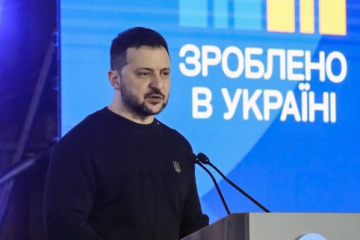
Ukrainian businesses and the state should conclude a modern ‘moral agreement’, where the state will provide support for businesses, and businesses will operate with no shady deals and stay away from the Russian market.